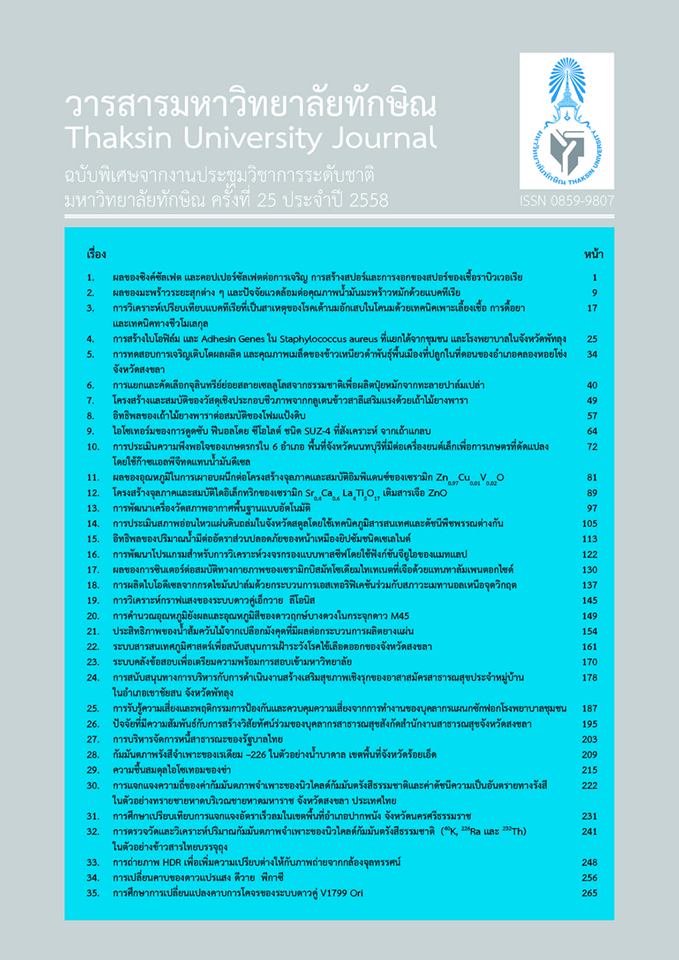The Different Stages of Coconut Fruit and Environmental Factors Affect to the Quality of Coconut Oil Fermented by Lactobacillus plantarum (BCC 47647)
Main Article Content
Abstract
The objectives of this research were to select harvest index of the coconut fruit (Cocos nucifera L.) and optimal conditions for virgin coconut oil production in order to increase oil quantity and quality. Four different stages of coconut fruit were examined to identify the most suitable stage for oil production. Coconut milk squeezed from coconut kernel was kept separately depending on their maturity. Four sets of milk were mixed at 1,500 rpm with water as 1:1 for 10 min, then stored at -18C for 2 hrs. After that, coconut cream was separated to transparent glass bowl and fermented by Lactobacillus plantarum (BCC 47647). The results signify that Ripe-coconut could maximize the amount of crude-oil as 81.71% and virgin oil recovery as 31.45%, when the coconut cream was fermented by pure 1 % culture at 35oC for 24 hrs. After discarding water retained and storing the oil for 2 mounts, the chemical properties which are moisture (0.11%), saponification value (258 mg KOH/g), Lauric acid (0.22%), acid value (0.76), peroxide value (1.48 meq/kg) and Anisidine value (0.22), reach the standards of coconut oil set by the Thai Industrial Standards Institute (OTOP standard 670/2004) and the Thai Food and Drug Administration (notification No. 57/1981).


